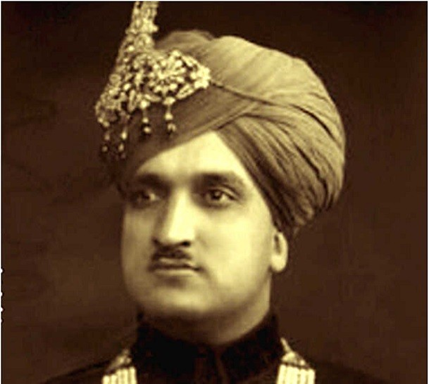

16th September 2022 (8 Topics)
Context
In Jammu and Kashmir, the Government has decided to declare Maharaja Hari Singh’s birth anniversary, September 23 as a public holiday.
About
Maharaja Hari Singh:
- He was born on 23 September 1895 in Jammu. He was the son of Raja Amar Singh Jamwal whose brother Pratap Singh was the king of the state.
- Maharaja Hari Singh was a great educationist, progressive thinker, social reformer and a towering man of ideas and ideals.
Education
- When Hari Singh’s father died in 1909, the British took a keen interest in his studies.
- After his basic education in Mayo College in Ajmer, Rajasthan, Singh went to the British-run Imperial Cadet Corps in Dehradun for military training.
Throne accession
- At the age of 30, Singh ascended the throne of the Maharaja of J&K when his uncle Pratap Singh passed away in 1925.
Important Measures undertaken by Hari Singh
- After Hari Singh ascended the throne, he took many measures. The Muslim population of the state was quite disenfranchised till his arrival.
- Hari Singh introduced rules under which children were forced to receive modern education in what came to be known as Jabri schools. (Jabar means force)
- Hari Singh also wanted to restructure the state bureaucracy to improve governance.
- With this purpose in mind, he started to import bureaucrats from other parts of British India especially Bengal.
- The Kashmiri Pandits under the Dogra regime were highly educated and intellectually very strong. They knew that importing officials from Bengal would have long-term ramifications on governance and policy, hence they resisted.
- A popular uprising against Hari Singh began in 1931 when Abdul Qadeer of Swat (Modern Day Pakistan), an employee of an English army officer, was put on trial for treason and conspiracy to overthrow the regime.
- Though Hari Singh largely contained the rebellions between 1931 and 1947, his real test came with the partition of British India.
After Partition Situation
- Hari Singh, backed by his administration, wanted J&K to remain an independent region, espoused by his Prime Minister Ram Chandra Kak.
- But, according to the two-nation theory, the state, was supposed to join Pakistan on account of the princely state being a Muslim majority.
- Hari Singh even signed a Stand Still agreement with Pakistan in order to maintain status quo till the final decision on Kashmir was agreed upon. India, however, did not sign the agreement.
- In the meantime, people from Chenab Valley’s Poonch region, in June 1947, raised arms against Hari Singh’s Dogra soldiers even as the subcontinent was engulfed with communal riots.
- The rebellion was carried out mostly by former Muslim soldiers of the British Army who had returned from the First World War.
- The rebellion in Poonch region of J&K followed by a brutal crackdown by Singh’s forces gave the newly-created Pakistan pretence to send over tribal militias.
- For long, the Indian state maintained that the tribal militias were Pakistani troopers. The intervention by Pakistan is now known as “Kabail raid” in local parlance.
- Hari Singh, who had till then successfully maneuvered his way between India and Pakistan to remain independent, was caught in a fix.
- Under pressure from the Nehru government to allow Indian troops in Kashmir to defend the region and the insurgency in Poonch, Hari Singh signed the Instrument of Accession to join India, reluctantly.
- In 1952, Hari Singh’s rule as the Maharaja was terminated.
- Hari Singh died in Bombay on 26 April 1961.



